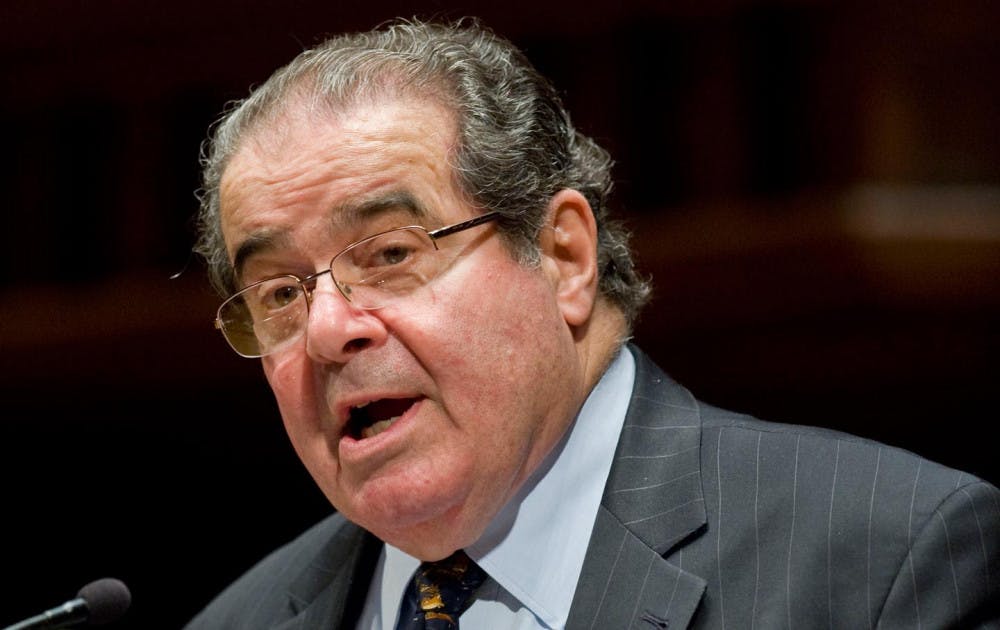By Roman Orsini
Staff Writer
Associate Justice to the Supreme Court Antonin Scalia, 79, died at a ranch in west Texas on Saturday, Feb. 13. Scalia spent the weekend hunting, until his host, John Poindexter, a wealthy Texan business man, found him dead in his bed that morning, the Los Angeles Times reported.
Without seeing his body and without ordering an autopsy, a local county judge, Cinderella Guevara, declared Scalia died from natural causes, according to the Washington Post.
While the lack of definite proof of Scalia’s death, otherwise known as declaration in absentia, was permissible under Texas law and the family did not want an autopsy performed, conspiracy theories quickly arose that Scalia was potentially murdered, according to the Los Angeles Times.
Scalia was appointed to the Supreme Court during the Reagan administration in 1986 and was the first Italian-American to hold the position. He served until his passing and had a say in outcomes of numerous hearings by the Supreme Court.
Scalia is recognized as a constitutional originalist, applying a strict interpretation of America’s founding documents, based on original context, to derive their legal intent, the Washington Post reported. To the delight of his admirers and ire of his detractors, Scalia was among the most consistently conservative justices to ever hold the position.
As such, several conservative radio hosts and groups began calling for a murder investigation in the wake of Scalia’s death, fearing assassination had removed a prominent conservative justice in order to fill the vacancy with a left-leaning one, according to the Los Angeles Times.
Such fears were stoked following statements by Poindexter, who originally told the San Antonio Express-News that he found Scalia with the pillow over his head.

After Republican presidential candidate Donald Trump harped on this statement to suggest foul-play in Scalia’s passing, Poindexter quickly specified his original comments to CBS, saying the pillow was between Scalia’s head and the backboard of the bed.
According to the Los Angeles Times, Scalia was in poor health prior to his passing. He was deemed too fragile to undergo shoulder surgery and had high blood pressure. His family has also accepted the conclusions of the local judge.
Still, the conspiracies surrounding Scalia’s death among select conservative circles pervades into the process of choosing his successor. Republicans in Congress reject any move by President Barack Obama to appoint a new justice in his last year in office, having already appointed justices Sonia Sotomayor and Elena Kagan.
Although recent historical precedent exists for Obama to do so, Sen. Mitch McConnell, the majority leader, has insisted that the next justice should be appointed by the next president, whom McConnell presumes will be a Republican, according to CNN.
Obama has stated that he intends to nominate a successor in his last year, according to ABC News.
The interplay between presidential and judicial politics will see the Republican-controlled. Congress looking to delay, or simply decline to vote on any nominees from President Obama.
Scalia’s funeral was held at the Basilica of the National Shrine of the Immaculate Conception in Washington, D.C., on Saturday, Feb. 20, before thousands of onlookers, according to the Washington Post.
In a perceived furtherance of the partisanship surrounding Scalia’s replacement, Obama received flak for not being in attendance.







